- Home
- Logan Jacobs
Gun Mage: Surviving a Post Apocalyptic Magic Earth Page 2
Gun Mage: Surviving a Post Apocalyptic Magic Earth Read online
Page 2
“How’d a little shit like that end up with magic?” John mused while we watched the stableboy lead our horses away.
“If it’s possible to steal magic, I’d say that’s what he did,” I sighed as I climbed on top of one of the fence rails to watch and wait.
John laughed as he joined me on the rail, but the watch turned out to be a rather tedious job, despite the looming threat of dastardly rustlers and the hordes of curious onlookers who wandered by.
Bored, and still a little ticked off at Preston, I started to dig through my pockets, convinced I would find one last piece of hard candy to suck on. What I found instead was the flier Mr. Gibson had handed me. I didn’t even realize I’d shoved it in my pocket, and with nothing else to do at the moment, I pulled it out and started to read through the list of special events.
I skimmed over the part about the new choral piece that had been commissioned for the anniversary and the children’s parade through the park. There was a dance competition at someplace called Grand Central which looked vaguely interesting, mostly because of the young women who were sure to be there. Then there was a description of some sort of special exhibit at the museum that would include rare and old world artifacts. Despite my interest in the pre-magic world, I didn’t think it would be very fun. I’d been to these kinds of “special exhibits” in the past, and they all had the exact same objects and delivered the exact same lessons about the horrors of the pre-magic world.
But then one word caught my attention.
Guns.
I’d heard about guns. Everyone had. They were terrible weapons that had caused the death of millions. They’d led to wars and years of endless bloodshed, and even toppled governments. Yet, even as I read the word, I felt an itch in my palm and a desire to see these weapons.
“What’s so interesting?” John asked when he noticed me reading the flier.
“One of the museums is doing a special display of pre-magic items,” I explained. “You know, all the bad stuff that made the world such a miserable place.”
“Huh,” John grunted, clearly not impressed. He’d probably seen his share of “special exhibits” as well.
“Says here they’re even going to have guns,” I added.
John perked up at that. It was hard not to wonder about such deadly weapons, and every kid I’d known growing up had tried to imagine what it was like to hold one.
“Now, that might be worth seeing,” John acknowledged.
“If you pay for the tour, you can even hold one,” I read in awe.
“Oh, damn, we have to do that,” John declared.
“Do what?” a voice behind us drawled.
We both turned around and nodded to Larry Hunt. He was one of the older hands on the drive, and the only one who had been to the city before. Sometimes, if you got enough whiskey in him, he would tell you stories about the time before the meteorite.
“They’re gonna let people touch a gun,” John explained.
Larry hummed and gazed out over the cattle with a far away look in his eyes.
“Have you ever held one before?” I asked.
“I used to go hunting with my grandfather,” Larry replied after a long pause. “We’d hunt deer and boar. Sometimes grouse.”
“What’s it like?” John asked as he leaned forward with an eager expression. “Shooting a gun, I mean.”
Larry opened his mouth to answer, then glanced around the corrals. There were still a lot of people around, none of whom we knew, so Larry just shook his head, then leaned against one of the posts.
“I’d like to go with you, if you’re planning to go that is,” Larry said under his breath.
“As soon as these security guys get here,” I replied.
Larry pondered this for a moment.
“You two are in the last set of bunks in the building,” he finally noted. “I asked the kid to make sure your gear made it to the right place.”
“Thanks,” John and I said at the same moment.
We chatted quietly for a bit longer, but the itch in my palm had yet to disappear. Larry caught me scratching it a couple of times and asked me if I’d had a run in with some poison ivy. I laughed and assured him I had not, but I had to stop myself from picking at my palm a few more times after that. I had no idea where this sudden need to handle a gun had come from, and though it was probably something that should have made me worried, all I could think about was the gun I was going to hold.
Gibson’s security team eventually arrived, late and smelling of alcohol and cigars, but one look into the mean eyes of their leader, and I swallowed the complaint I’d been about to make.
Larry gave the man a tip of his hat, and then the three of us made our way back to the main streets of the city.
John and I were both in favor of walking to the museum, but Larry warned it was further than we believed, and it would take too long with the traffic that packed the sidewalks. So, we agreed to split the cost of a horse cab, which turned out to be a good way to see the city. It also kept us out of the press of people, which I was secretly grateful for.
The little section we’d already seen was nothing next to the rest of the city. We passed buildings that were ten stories tall and occupied an entire block. The roads further north were all paved and lined with trees. Special lights at the intersections told drivers which vehicles could go and who had to wait. We saw more clothing shops along one stretch than filled the entire town back home. Restaurants offered food I didn’t recognize, and one bar we passed claimed to have more than fifty different beers. I didn’t want to look like the country bumpkin come to visit the big city for the first time, but I was pretty sure my mouth hung open for most of the trip.
“Look at that!” John called out in awe as we neared the museum.
He pointed to one of the ancient buildings now preserved as a historical site. It looked like it was made of glass and at least twenty stories tall, and judging by the jagged edges along the top, it had probably been even taller once upon a time.
“Used to be an apartment building,” Larry said as we rode by. “They’ve got one set up so you can go see what it looked like in the before times.”
John and I both turned around to gape at the building until the carriage came to a halt. We paid the driver, then dropped to the sidewalk. We were instantly surrounded by a sea of people, and I almost made a grab for John’s hand, just so we wouldn’t get separated.
Larry placed a hand on our shoulders, though, and he guided us through the currents to the museum steps, where we stopped for a moment to take in the view.
“Wow,” I breathed as I studied the looming marble facade.
It was white, or maybe just a very pale honey color, depending on the light. Three great entryways were sandwiched between four sets of columns, accessed by climbing a long and imposing staircase. There were strange and fantastic creatures carved from stone along the edge of the roof that kept watch over the crowds of people below, and a row of glass windows taller than any I’d seen before sparkled in the sun.
“Was this from the old city?” John asked as he took in the dancing fountains on either side of the steps.
“Yup, took a lot of work, but they were able to restore most of it,” Larry explained as we started up the stairs.
When we stepped inside, the first thing that hit me was the noise. We were in a vast hall, filled with people, and all of them seemed to be talking at the same time. Even the smallest of sounds, like a slight cough or the scuff of a boot, bounced off the marble floors and the high ceiling until it was almost impossible to hear the person standing next to you.
Larry left us near a column to stare at the domed ceiling like the newcomers we were, but I noticed we weren’t the only ones who looked overwhelmed by the hall. Reassured, I looked around at what little else I could see of the museum until Larry returned and handed us each a ticket.
“For the tour of the exhibit,” he said.
“How much do we owe you?” I asked as I star
ted to dig out my money pouch.
“Buy me a beer later,” Larry replied as he waved us off. “Come on, the next tour’s about to start.”
Larry led us through the crowd to a group of people gathered near one of the many arched entrances. There was a large banner over the arch that said “Death and Danger in Pre-Magic Society,” but what had everyone’s attention was the item just to the right of the door.
A car.
I’d seen plenty of them before, of course. Their rusting corpses littered the landscape, and it was said you could still see whole lines of them in old cities that had never been rebuilt, in the spots where their owners’ abandoned them. Every so often, someone converted one to run on magic, and that always drew a crowd.
I had to admit, though, I’d never seen one in such pristine shape before. This car was painted dark blue and featured leather seats, a whole lot of buttons and dials with no obvious purpose, and something called a V-8 twin turbo. It was sleek and beautiful, and it was hard to believe something that looked like a piece of art could lead to the collapse of civilization. The mages insisted this was true, though, and the tour guide, a cheerful woman with a long red braid, was describing the horror of a world filled with cars as we quietly slipped into the back of the group.
“So, each car produced this invisible but deadly gas,” she stated. “Whenever the engine was turned on, even if it wasn’t moving, it would emit these dangerous fumes. Now, you may say, ‘but it wasn’t that much, right?’”
A few in the crowd nodded.
“But everyone owned at least one car and most owned more,” the guide continued. “Rather than riding together, every family member would just get in a car and go do their own thing. And they used them for everything. Why, they’d drive them less than a mile just to go pick up their lazy children. It’s a wonder the human race didn’t die out well before the meteorite hit.”
That comment brought the expected chuckles, but I rolled my eyes. I’d heard the mages disparage pre-magic humans all my life, and I’d learned to keep my own fascination with those long ago inventions to myself.
And to be honest, for all their magic, the mages had never built anything that looked as sleek as this blue car.
“So, imagine millions of these things, putting out tons of poisonous gases every day,” the guide added. “You can see why so many people got sick and died from breathing in the air. As many as thirty thousand people every year.”
“But why didn’t they stop using cars?” a young woman near the front asked. “They must have known what the cars were doing.”
“As I said,” the guide replied, “they’d gotten lazy and lost touch with the world around them. Luckily, the mages were able to reconnect us with the planet and save us from ourselves. They saved the world. They saved the human race.”
Many in the group replied with an “Amen.”
I very briefly considered turning away from the tour since I had no interest in the usual sermons about the wonderous world of magic, but the need to see the guns had been growing inside me since I’d read the flier. Now that I was only a few feet away, the itch in my palm was impossible to ignore.
John nudged me, so I added an “Amen” of my own. I realized the need to see and hold the gun overwhelmed any dislike I might have for the lecture we were about to receive, and I gave up on the idea of leaving the tour.
So, when the guide was satisfied we were all appropriately appreciative of the mages, she led us into the first room of the exhibit, and I told myself to draw a deep breath and be patient.
“Now, let’s step into the next room, where we can take a look at some of the other technology that destroyed the planet,” the guide suggested.
I mostly tuned out the guide while she pointed to a display of bottles made out of an indestructible substance that slowly poisoned the water. I knew what the guide was about to discuss before she even opened her mouth. Plastic was so common at these exhibits that I wondered why they even bothered to include it any more.
“Plastic,” the woman intoned sadly with a shake of her head, and I moaned on the inside. “Even today, it still washes up from the depths of the ocean to pollute our shorelines.”
“Terrible people,” a middle-aged man grunted. “You know, my parents used to talk about the old days like it was something to be missed. But I’ll tell you, I wouldn’t go back to that poisoned world for anything. Thanks be to the mages.”
“Praise the mages! Amen!”
The guide smiled wide as others joined in, and John elbowed me again, so I made the appropriate sounds. Then, satisfied we were all angry at the bad behaviour of our ancestors, the guide led us to the next room, which was all about the myths of the old days.
“Now, I will say this,” the guide declared cheerfully. “Those pre-magic humans could tell a great story.”
Chuckles and laughter filled the room, and I fought the urge to roll my eyes again while I sauntered over to look at some of the pictures on the wall. There was one of a man in a white suit that covered him from head to toe. His face was hidden by a gold shield for some reason, and he stood in the middle of a dusty gray landscape. Next to him was a stiff piece of cloth, one I recognized as the flag for Old America, and the sky in the photo was blacker than I’d ever seen it.
“The picture our young guest is looking at was supposed to have been taken on the surface of the moon,” the guide intoned, and I glanced over my shoulder to see everyone staring in my direction. “Of course, we know that’s utter nonsense. The mages have established there’s no way for humans to survive on the surface of the moon.”
I tuned out the rest of her speech as she went on to disparage flying machines that could carry people across the oceans and something called an interweb that connected to metal bread boxes.
Instead, I studied the man in the picture. I wasn’t as convinced as the guide was that man couldn’t survive on the moon, and I had a feeling the suit the man wore made it all possible.
As I pondered the question of breathing on the moon, I thought back to a time when I’d been given the task of treating a half dozen cows with the stomach rot. They’d all been kept in the barn, and the smell was terrible, so I’d just held my breath, made sure one drank its water, ran out of the barn, and then took a few deep breaths before repeating the process. If the air on the moon was so bad for you, couldn’t they have made the suit air-tight and then just filled it with enough oxygen to breath for a half an hour?
“Thank goodness the mages are here now, to weed out the untruths and reveal the facts,” the guide announced. “And now, the room many of you have been waiting for, I know. The room we are about to enter contains one of the deadliest creations in mankind’s history: the gun. This weapon made it possible for anyone to kill another person from a great distance, with little thought or effort. The old annals are filled with tales of people who were angry, or drank too much, or simply became distraught with the world for a moment, and then they went and found a gun, and just started shooting. The most advanced versions could even fire hundreds of bullets in mere minutes. Why, even a child could cut down his schoolmates in less time than it takes to load a crossbow, and that often happened in the before world.”
This drew gasps from the crowd, and one woman shook her head sadly. The tour guide stepped into the next room, and we all shuffled in behind her. Then, with a dramatic sweep of her hand, the guide let us soak in man’s most horrendous invention.
Most of the people gasped, and one woman even sobbed as they took in the horrors of guns, but the itch was nearly unbearable now, and I had to check to make sure I hadn’t developed a rash after all. Most of the guns were in display cases, but two were out where everyone could touch them. The kids in the group ran to the guns first, and I had to make do with simply walking around the room while I waited for my chance to finally touch one of the weapons.
“What are bullets?” I heard someone ask the guide.
“Small tubes of metal, capped at both ends,” t
he guide replied. “They were filled with gunpowder, which provided the explosive force that propelled the bullet down the barrel of the gun. Though small, they moved with such great force and at such great speed they could kill a man with a single shot. Not even armor could stop it.”
Even as she spoke, an image came into my head, and I knew it was the bullet that was appropriate for the gun I was examining. I had no idea how I got this knowledge, and yet as I moved on to the next gun, the same thing happened. The bullets were slightly different, but it was definitely the right design for that gun.
“Of course, bullets haven’t been manufactured since the meteorite,” the tour guide continued, “and none of the guns in the exhibit have bullets in them, which is why we’ve placed two of the weapons out where you can touch them. All we ask is you allow your fellow museum goers a chance to study the guns as well.”
This last comment was directed at four boys who had been holding the guns since we entered the room. Two of the adults shooed them away from the guns, and the rest of us moved in. The most popular gun was called an 1873 rifle, and it featured a long, skinny barrel and a wood stock stained a dark red. Every man and several of the women gathered around and waited for their chance to pick up the relic and sight along its length or peer down the barrels.
But I had to hold one now, or the itch in my palm would surely drive me crazy.
So, I moved over to the second gun, a smaller weapon clearly meant to be held in one hand. Glints of silver could still be seen beneath the layers of rust and dirt, but no one else seemed interested in what had to be an inferior weapon, given its small size and uncared for appearance.
“That one is called a Colt Single Action Army Revolver,” the guide announced as she stepped up next to me. “It was very popular during the time called the ‘Old West of America.’ It only fired one bullet at a time, but it had a reputation for being very accurate.”
I picked up the gun, and it felt absolutely perfect in my hand. The weight, the balance, even the grip felt as if they’d been designed for me and me alone. There was also a tingling sensation in the tips of my fingers that grew more intense the longer I held the gun.

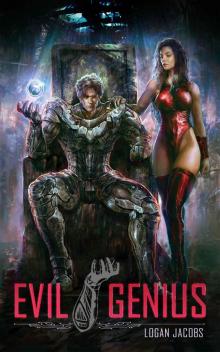 Evil Genius
Evil Genius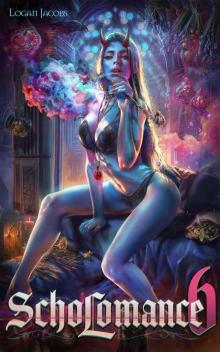 Scholomance 6
Scholomance 6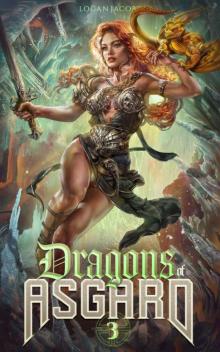 Dragons of Asgard 3
Dragons of Asgard 3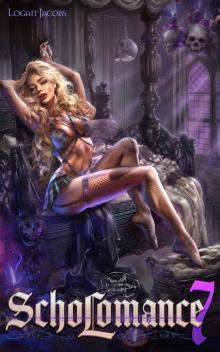 Scholomance 7
Scholomance 7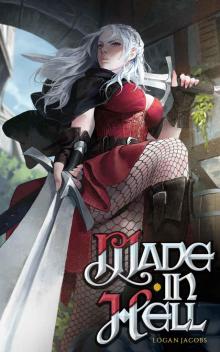 Made in Hell
Made in Hell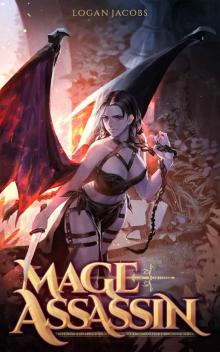 Mage Assassin
Mage Assassin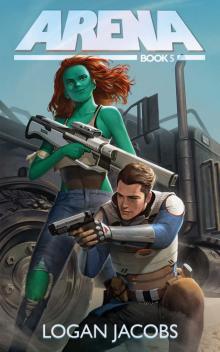 Arena 5
Arena 5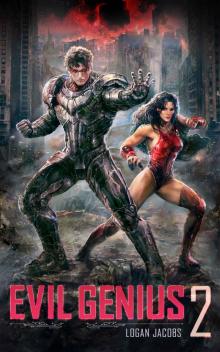 Evil Genius 2: Becoming the Apex Supervillain
Evil Genius 2: Becoming the Apex Supervillain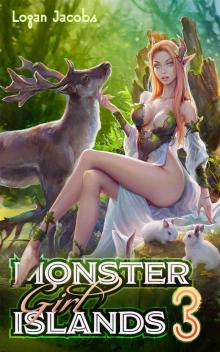 Monster Girl Islands 3
Monster Girl Islands 3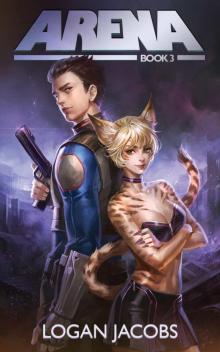 Arena Book 3
Arena Book 3 Monster Girl Islands 2
Monster Girl Islands 2 Monster Girl Islands 5
Monster Girl Islands 5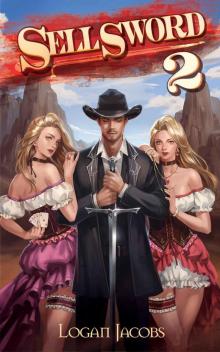 The Amoral Hero
The Amoral Hero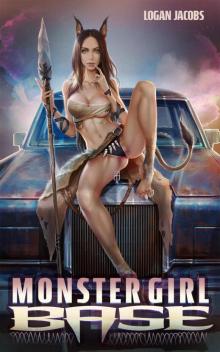 Monster Girl Base
Monster Girl Base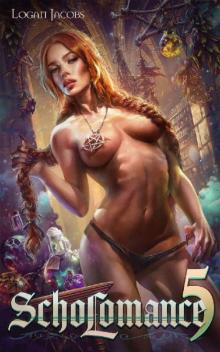 Scholomance 5
Scholomance 5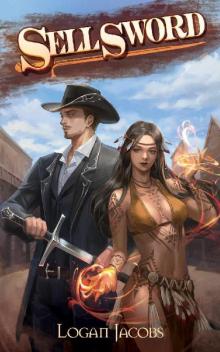 Sellsword- the Amoral Hero
Sellsword- the Amoral Hero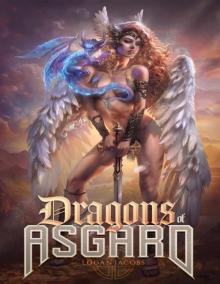 Dragons of Asgard
Dragons of Asgard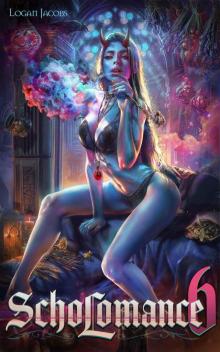 Scholomance 6: The Devil's Academy
Scholomance 6: The Devil's Academy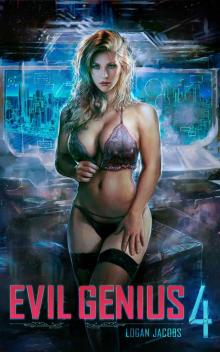 Evil Genius 4: Becoming the Apex Supervillain
Evil Genius 4: Becoming the Apex Supervillain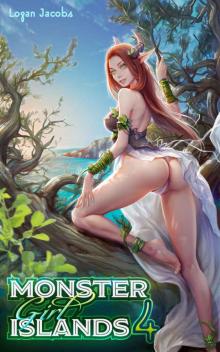 Monster Girl Islands 4
Monster Girl Islands 4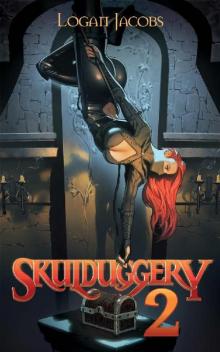 Skulduggery 2
Skulduggery 2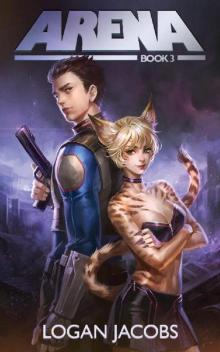 Arena 3
Arena 3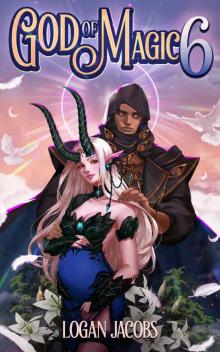 God of Magic 6
God of Magic 6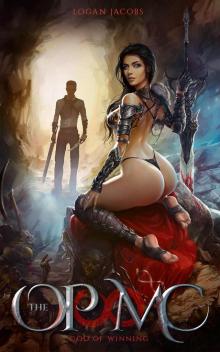 The OP MC
The OP MC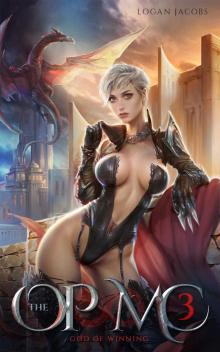 The OP MC 3
The OP MC 3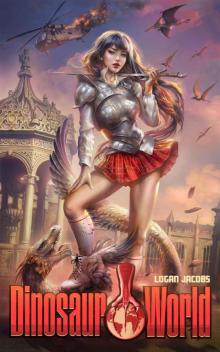 Dinosaur World
Dinosaur World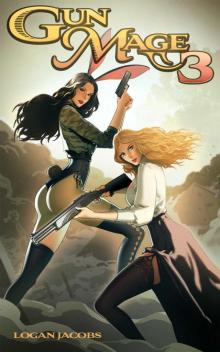 Gun Mage 3: Surviving a Post Apocalyptic Magic Earth
Gun Mage 3: Surviving a Post Apocalyptic Magic Earth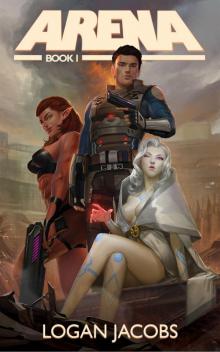 Arena
Arena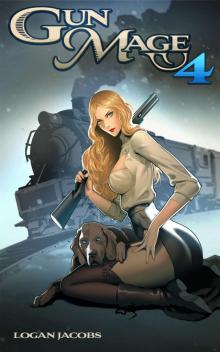 Gun Mage 4: Surviving a Post Apocalyptic Magic Earth
Gun Mage 4: Surviving a Post Apocalyptic Magic Earth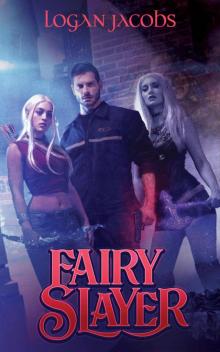 Fairy Slayer
Fairy Slayer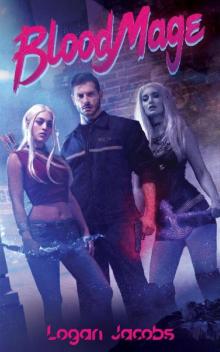 Blood Mage
Blood Mage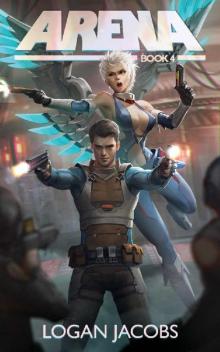 Arena 4
Arena 4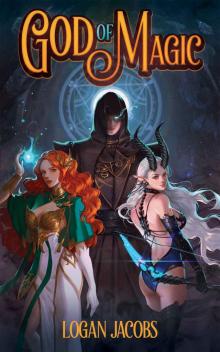 God of Magic
God of Magic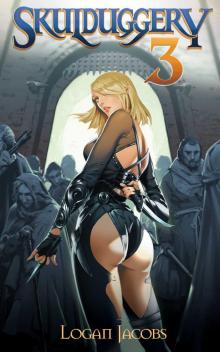 Building a Criminal Empire
Building a Criminal Empire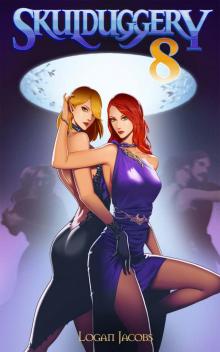 Skulduggery 8: Building a Criminal Empire
Skulduggery 8: Building a Criminal Empire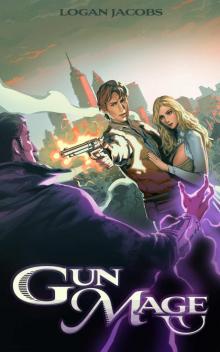 Gun Mage: Surviving a Post Apocalyptic Magic Earth
Gun Mage: Surviving a Post Apocalyptic Magic Earth Monster Girl Islands 6
Monster Girl Islands 6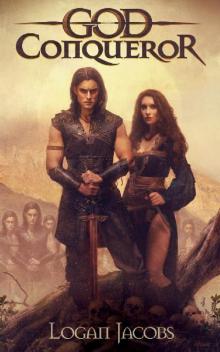 God Conqueror
God Conqueror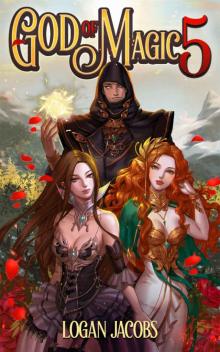 God of Magic 5
God of Magic 5 Dinosaur World 3
Dinosaur World 3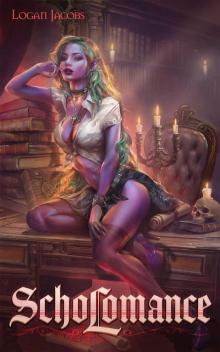 Scholomance 1
Scholomance 1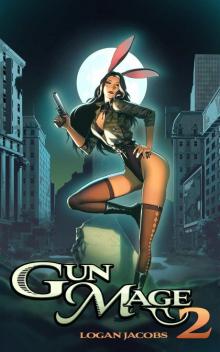 Gun Mage 2: Surviving a Post Apocalyptic Magic Earth
Gun Mage 2: Surviving a Post Apocalyptic Magic Earth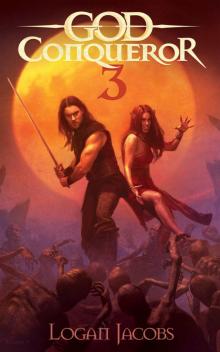 God Conqueror 3
God Conqueror 3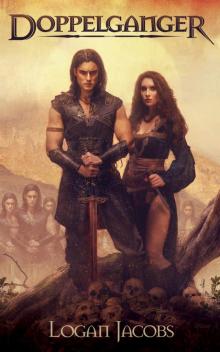 Doppelganger
Doppelganger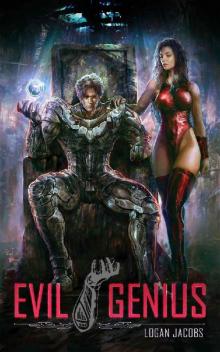 Evil Genius: Becoming the Apex Supervillain
Evil Genius: Becoming the Apex Supervillain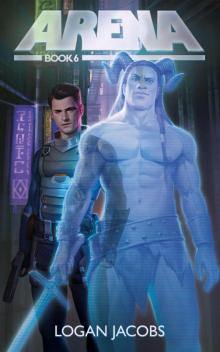 Arena Book 6
Arena Book 6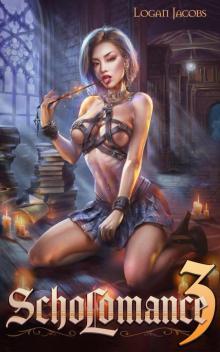 Scholomance 3: The Devil's Academy
Scholomance 3: The Devil's Academy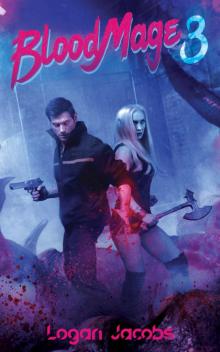 Blood Mage 3
Blood Mage 3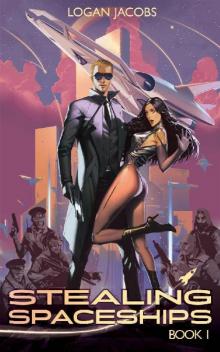 Stealing Spaceships: For Fun and Profit
Stealing Spaceships: For Fun and Profit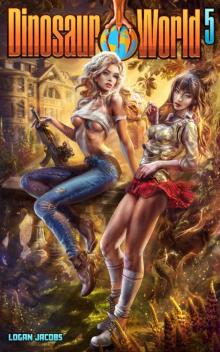 Dinosaur World 5
Dinosaur World 5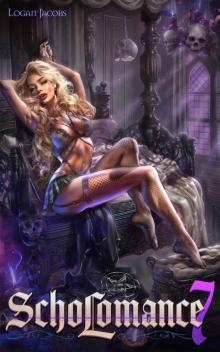 Scholomance 7: The Devil's Academy
Scholomance 7: The Devil's Academy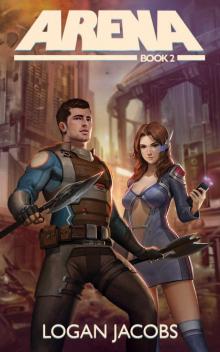 Arena Book 2
Arena Book 2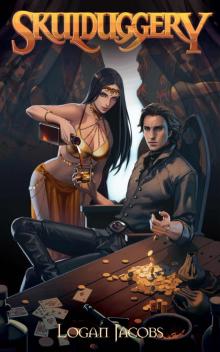 Skulduggery
Skulduggery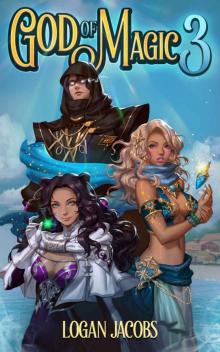 God of Magic 3
God of Magic 3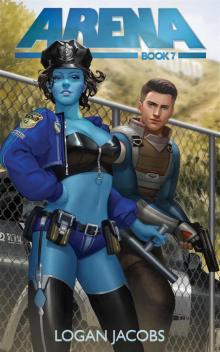 Arena Book 7
Arena Book 7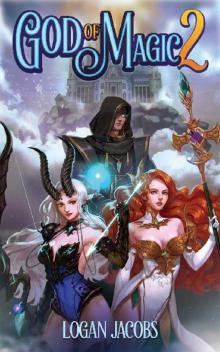 God of Magic 2
God of Magic 2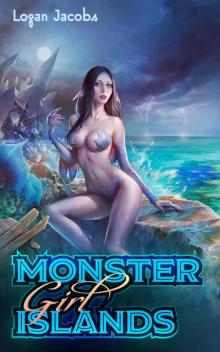 Monster Girl Islands
Monster Girl Islands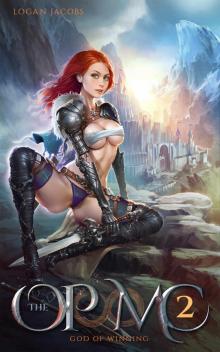 The OP MC 2
The OP MC 2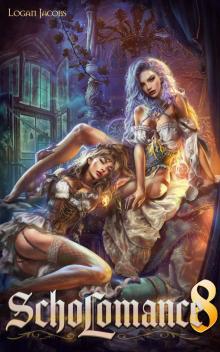 Scholomance 8: The Devil's Academy
Scholomance 8: The Devil's Academy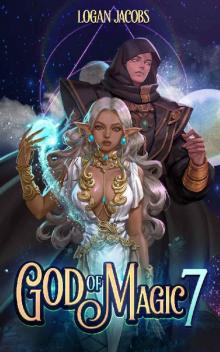 God of Magic 7
God of Magic 7 Monster Girl Islands 7
Monster Girl Islands 7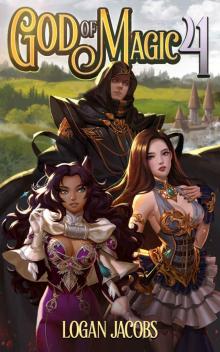 God of Magic 4
God of Magic 4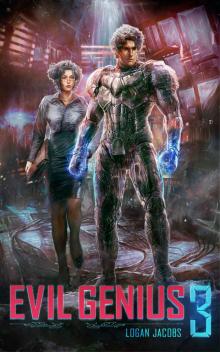 Evil Genius 3: Becoming the Apex Supervillain
Evil Genius 3: Becoming the Apex Supervillain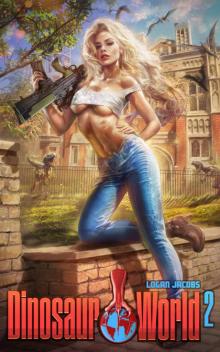 Dinosaur World 2
Dinosaur World 2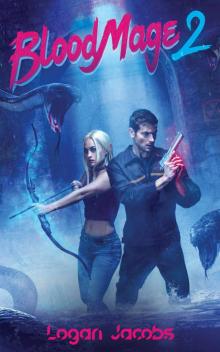 Blood Mage 2
Blood Mage 2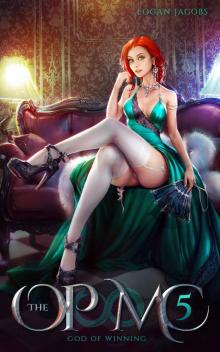 The OP MC 5: God of Winning
The OP MC 5: God of Winning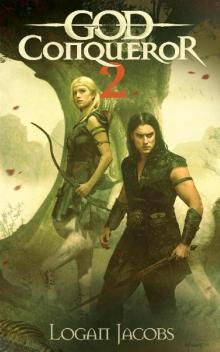 God Conqueror 2
God Conqueror 2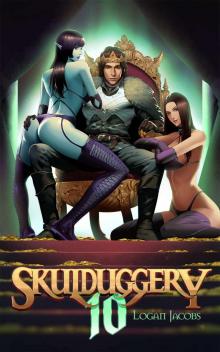 Skulduggery 10: Building a Criminal Empire
Skulduggery 10: Building a Criminal Empire